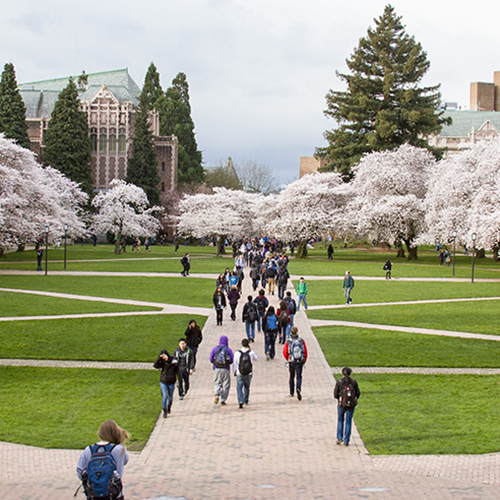As I write this letter, the dust is beginning to settle from what was, by any measure, one of the most remarkable Washington State legislative sessions in recent memory. It will take several more weeks at least before we know the full impact of the Legislature’s funding decisions on the University and the College of Arts and Sciences. The devils reside in the details, and many details are still unknown. They will be revealed in the weeks and months ahead, as the Legislature’s decisions are translated by our financial analysts into policy decisions inside the University.
At the College level, we do not yet know whether we will have more or fewer dollars to spend in the current fiscal biennium, which began on July 1, than in the last biennium. We hope to know soon. What we do know is that tuition for in-state undergraduates at the University of Washington will drop — by five percent in the first year, and by another ten percent in the second year — and that the state of Washington’s contribution to the University’s operating expenses will rise by an amount intended to make up for the reduction in tuition revenues. This is a dramatic change from many years of steady tuition increases. It will be welcomed by our students and their families, and we applaud the Legislature for taking this bold step.

Reducing tuition will undoubtedly have a positive impact on our students’ financial well-being. We hope it will also have positive effects on their education. As tuition at the University of Washington surged upward in recent years, especially with massive state budget cuts since 2009, we have seen the impact in a variety of ways in the College of Arts and Sciences. As I have noted in previous Dean’s Letters, since 2009 student enrollments have shifted significantly, moving away from the humanities and social sciences and into the natural sciences. We also have seen many fewer students double-majoring or earning joint degrees, especially in the humanities and social sciences. Students and their families are clearly deciding that the financial costs of a double major or a joint degree are higher than the rewards they will derive from it, and they are tailoring their curricular choices accordingly. As a result, the number of students majoring in some humanities and social science departments has dropped by a third.
The great strength of an Arts and Sciences education is precisely the combination of breadth and depth that it makes possible.
As a teacher and a dean, I regret that students feel compelled to make such choices. The great strength of an Arts and Sciences education is precisely the combination of breadth and depth that it makes possible. To give up on the chance to learn another language, to study abroad, or to explore unfamiliar artistic and cultural worlds is a loss for our students, and the long-term consequences for the students can never be known. I hope that the Legislature’s decision to reduce tuition while increasing the State’s share of educational costs will make it more possible for our students to take full advantage of the opportunities we offer in all of our departments and programs. Our students will incur less debt, but they also will graduate better prepared to find their place in a rapidly changing world.
Robert Stacey
Dean, College of Arts and Sciences
More Stories

Dancing Across Campus
For the dance course "Activating Space," students danced in public spaces across the University of Washington's Seattle campus this spring.

Four Students Shine as 2024 Dean's Medalists
Meet the four new graduates honored as College of Arts & Sciences Dean's Medalists for 2024.

Celebrating Contemporary Indigenous Music
Markus Teuton, a musician and citizen of Cherokee Nation, explores contemporary Indigenous music through his academic work and as host of “Indigenous Jazz,” a radio show.